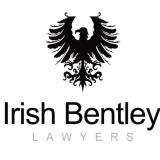
Directors cannot hide behind the company risk free any more, and it is extremely important that directors seek legal advice on their taxation obligations and what they need to do to protect their personal interests.
It is extremely easy to prove a company is insolvent, and once that is proven, the directors are personally liable for all debts incurred during that period.
Likewise, it is easy for the ATO to make directors personally liable for the company’s tax.
These issues can be dealt with but directors need advice to know how.
The reality is that ever since Skase and Bond left stratospheric debt behind them, the Australian government has been making directors more and more accountable, and legislation has been passed to stop directors shifting assets pre-liquidation, and to prevent companies paying one set of creditors, in preference to others.
The Australian Tax Office has also been particularly active here, and they have benefited from a raft of changes to the law making directors liable for tax debts incurred by the company that they direct.
It has never been more important for directors to seek legal advice on what they should do to protect their interests.
The main areas that directors should be worried about are:
Directors can also be held responsible for any company tax debts, where they are served with a director’s penalty notice and fail to appoint an administrator or liquidator to govern the company’s affairs. These are generally these are used where there are outstanding PAYG or superannuation payments. This is especially concerning as service is effected by simply posting the notice (by normal post) to the director’s address (listed with ASIC – even if the director no longer lives there). The ATO do not need to prove the director received it, and the director cannot escape liability by proving he did not receive it. All the ATO need to do is prove they posted it (ergo that they placed it in a mail box).
Since 1 July 2012, company directors have been personal liable for any tax owing by the company, where the company has been late in lodging the required BAS, or has been late paying unpaid obligations under the Superannuation Guarantee and Pay As You Go schemes. Company directors who do not report unpaid superannuation contribution liabilities by the due time risk being personally liable, even if they comply with the requirements of a subsequently issued Director Penalty Notice. Accordingly, even if directors can’t pay the required funds by the due date, it is, to say the least, most prudent for them to report the liability by the due date. The first due date for the reporting of such liabilities is 28 November 2012.
The background to the above is that, under the present law, if company directors appoint administrators or wind up a company with outstanding superannuation guarantee debts, those directors can only avoid personal liability under the Director Penalty Notice Liquidation/Administration Safety Net if they report any outstanding debts from the June 2012 quarter before 28 November 2012, which is the “drop dead date” for the June 2012 quarter. After that, it is too late. “Drop dead dates” occur from quarter to quarter thereafter.
If company directors are in any doubt about the above liabilities, they should seek advice from Irish Bentley Lawyers.
The above newsfeed is a basic outline and should not be relied upon. There are defences available and processes that can be implemented to assist.
It is important that you understand the potential risks, and that you seek advice from an expert if you have any concerns. You should be concerned if your reporting is late, if your payment of PAYG or Super is late, or if your tax is overdue.
Irish Bentley Lawyers are here to help with legal taxation advice, if you have received a Directors Penalty Notice then act now phone: PH: 07 3891 3333